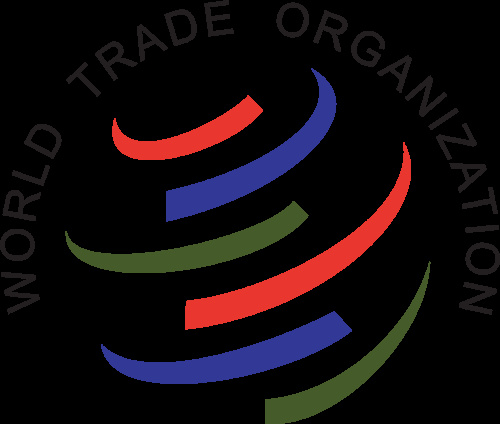Economic Diplomacy and Outreach to Global Trade

25 October 2013
Iran and 5+1 negotiations have topped the news of global and domestic mass media. Iran intends to have interaction with all countries, and the new government is doing its best thereof. It is, however, a great challenge and needs a national unified strong will. Political interaction needs to go with economic interface simultaneously. Iran has to intermingle with global economy. But, unless the sanctions are there it seems impossible having fair outreach to global trade system.
Iranian diplomats are making commendable efforts to lift these sanctions, having inclusive public support. We, however, cannot and should not wait till all sanctions are removed. So it is unavoidable to organize and plan for the point in time these sanctions start to be lifted. This requires an all- out and coordinated measures on the part of all public and private agencies. Fortunately before and after taking office, the new president and his administration have so focused on this, that the Oil Minister, Mr.Zanganeh did call ministry of petroleum a "second foreign ministry". Certainly, this needs to be true for the whole government apparatus.
Undoubtedly, in world today, the intermingle of national economic growth and global trade system is undeniable. World trade Organization is the best focal point to achieve this. One should not lose sight of the fact that unless all countries and particularly developing nations accede to this international trade body, having equal and non-discriminate rights and the position they deserve to voice, there should be no promising prospect for the accomplishment tasks assigned to it; and admittedly, the Agreements signed by 132 countries in Maghreb (Morocco) in 1994 are not expected to make sense. Moreover, the most important point that member states should not ignore is the special and differential treatment (SDT). That is the newly acceded countries as well as those, including Islamic republic of Iran, still waiting to come in, deserve to be assisted for embracing the conditions needed for the implementation of the built-in agenda of WTO
Reportedly, till March 2013, of 190 countries, 159 countries have been acceded to WTO and 31 as well as the Islamic Republic of Iran have not yet been granted full membership.
Unfortunately, in this, political observations have been involved. WTO is thoroughly a trade organization with barely economic characteristics and certainly with influence of political observations in its decision making process will be pretty unproductive that will never serve the aspirations of the Maghreb Agreement and eventually cannot contribute to global economic stability. Definitely, the imposed isolations of countries which have not been acceded to the body are quite unnecessary and unfair and the process of their accession needs to be sped up.
An important point is that sometimes WTO is referred to as a “cartel“. Occasionally, there are believes that a kind of polarization has shaped up within the organization, consisting of a group of certain developed and rich countries. Calling WTO a “cartel” is meaningless. It is quite clear, that a “cartel” monopolizes everything and merely serves the interests of certain groups and countries.
Conversely, WTO is not seeking the interests of a few but its main task is to serve all countries of the world and contribute to their development and prosperity through free trade. That is why it is open for the accession of all countries. It is not polarized, because we can see all countries, regardless of being economically powerful or weak are able to negotiate with no restrictions on an equal footing.
Once, more than a decade ago, the Thai Dr.Supachai Panichpakdi, former Secretary General of the World Trade Organization, made very wise and meaningful points. ”Although", he said, "the big economic powers and members of WTO so far have or are exerting influence within the organization, they need to appreciate that overtime and with the accession of China (then China had been newly granted full membership) and other powerful regional arrangements, their influence will be subdued and there must be more balanced influence, that is they are no longer will have the final say in decision making”.
To avoid the debacle WTO experienced in Seattle, he added, the organization is working out a scheme that could settle the disputes arise in forthcoming Conference. (He was referring to the Ministerial Conference in Doha November 2001).
These prove that all countries either developed or developing or so called "haves" and "have nots" should take a realistic stand if they are truly determined to serve the global economic prosperity and free trade that will eventually lead to secure their own national interests and economic prosperity.
It is now 17 years ever since Iran tabled its application for the full membership to the Organization. This has not been so far deliberated by the "working group'. Iran did provide the Organization with its trade system document which is the main instrument WTO requires the membership applicants to give. Interestingly, these documents have been distributed among the member states and they have put forward more than 700 questions on this trade instrument. However, due to uncertain motives, the application has been kept unfairly outstanding. It is worth reiterating that Iran is one the great oil and gas producers in the world with well-built and high qualified manpower and great production potentialities. Moreover, it also can generate great lucrative markets in this significant critical point of the world, and promote trade in Persian Gulf and Central Asia, that, eventually, is to serve advancing the global trade system.
Having this all this in mind, it is imperative that Iran's application for full membership be process as soon as possible because more delays will not serve anyone interests and will be just unproductive.

